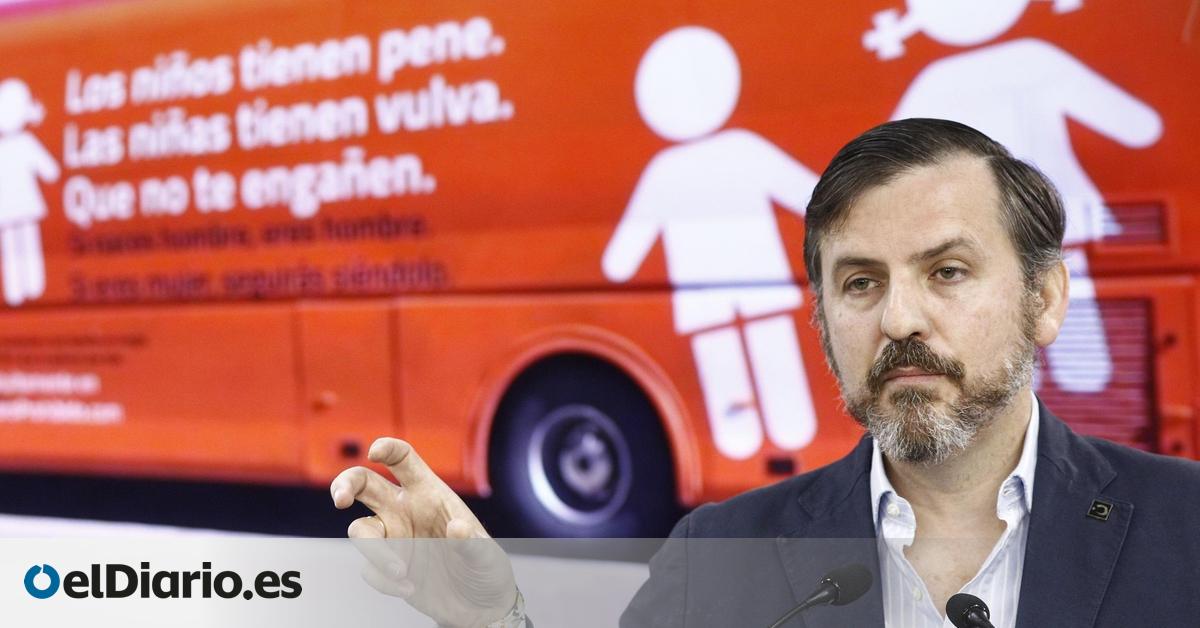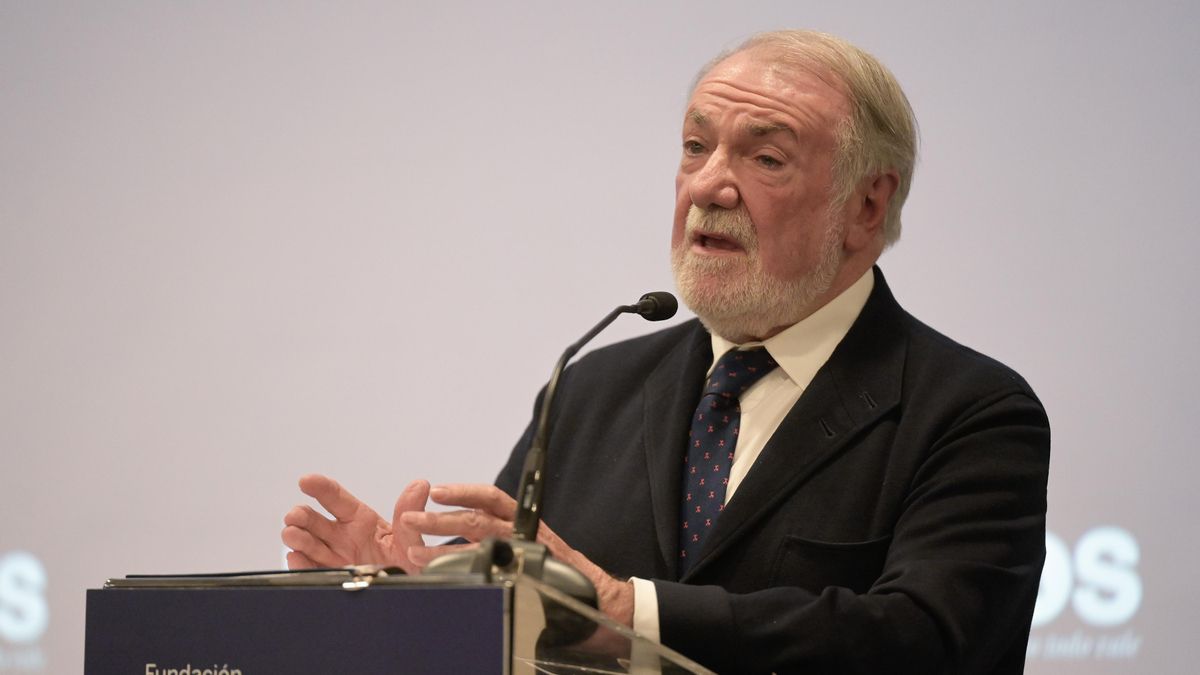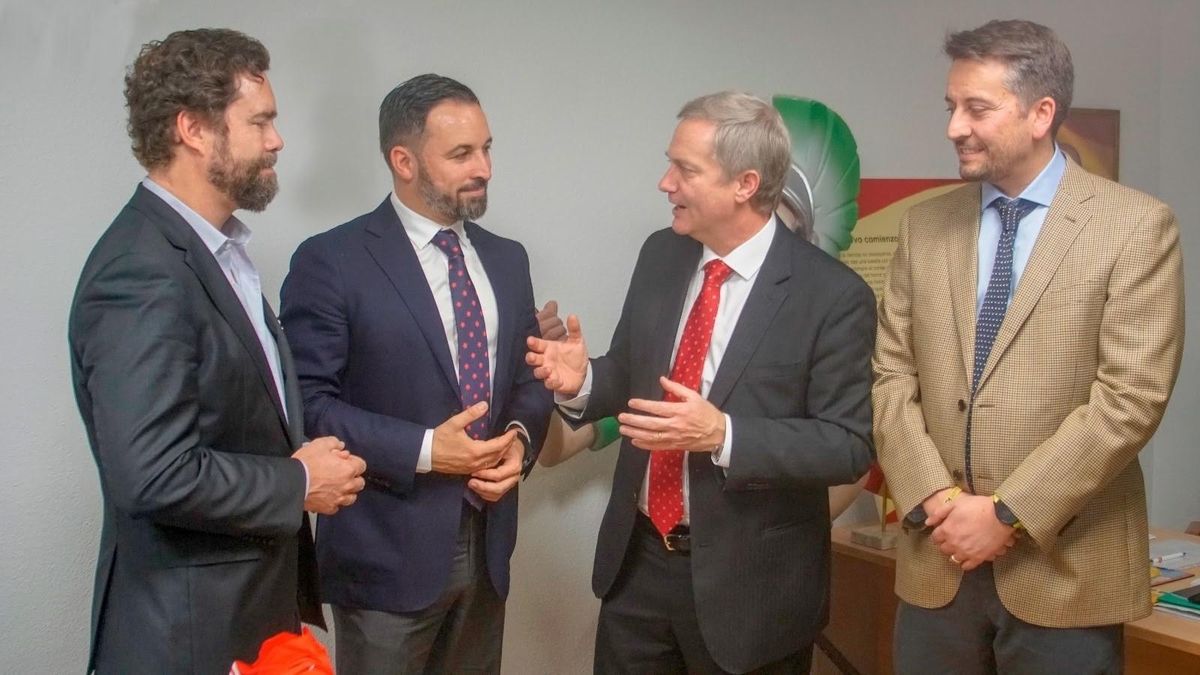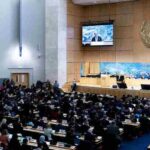
In 2010, while Argentina was debating the law that would make the country the first in the region to approve gay marriage, the streets were filled with banners with the slogan “we kids have the right to a mom and a dad.” Behind the slogans resounded familiar echoes: those of the ultra-conservative crusade that five years earlier had tried to stop the same right in Spain. Then, among their spearheads was the founder of HazteOír Ignacio Arsuaga, who with the experience behind him would travel to Buenos Aires to join the offensive. From there he went on to state: “If we participate in this cultural battle and reach the consciences and hearts of the people, the majority will continue to position themselves in favor of life, family and freedoms.”
The scene is no exception. This is revealed by new research promoted by the Association for Sexual and Reproductive Rights, which has analyzed the role of Spanish far-right forces in the expansion of anti-rights discourses on the global agenda. The conclusion is that Spain plays a key role through actors such as HazteOír, Opus Dei or Vox, who have created networks and articulated “transnational strategies” that have ended up impacting Latin America or Africa, says the study, which will be presented to the public this Thursday in Barcelona.
The report, prepared by a team of nine researchers led by the Brazilian Sonia Corrêa, illustrates through the cases of five countries – Argentina, Chile, Guatemala, El Salvador and Kenya – how Spanish influence “has contributed” abroad to the growth of the extreme right and the blockage of sexual and reproductive rights such as abortion. The authors define Spain as “a node” that “exports” discourses, ideas and tactics with the aim of “fighting the cultural battle against certain consensuses”, that is, “making increasingly acceptable the idea that not only are some rights dispensable, but that they must be reversed”.
Over time, Spain has become “one of the centers of origin and management” of some of the groups that lead this offensive: HazteOír and its international subsidiary CitizenGo, the Political Values Network (PNfV), Vox and Opus Dei. The study analyzes the activity of these five actors outside our borders and explains that, at the same time, Spain has positioned itself as “a host country” of the global far-right movement, as demonstrated by the PNfv summit held in the Senate last December or the one organized in Madrid by the European Patriots, with the presence of Santiago Abascal, the Hungarian Viktor Orbán and Marine Le Pen.
Upheaval and global summits
Both HazteOír and CitizenGo, highlighted in some investigations for their proximity to the secret society El Yunque, act as “engines of mobilization and agitation”, with pressure campaigns or collecting signatures. For its part, Opus Dei has a long history of territorial expansion since the late 1940s, in the midst of Franco’s rule, thanks to a strategy of “elite recruitment” and dissemination through the founding of educational centers and universities. The PNfV, presented in 2014 in New York, was created by former Minister of the Interior Jaime Mayor Oreja as a transnational platform, which brings together and convenes the main leaders of this offensive.

The last piece of the Spanish puzzle came from the hand of Vox, which since its emergence “began to invest a significant dose of energy in strengthening relations” with Spanish-speaking countries. It does this mainly through its think tank, Disenso, to which the training transfers 2.5 million euros per year. On its advisory board there are key figures from the Latin American extreme right and in 2020 it promoted the Madrid Forum, an international alliance that has popularized the concept of “Iberosphere” and has held meetings in Bogotá, Lima, Buenos Aires and Asunción that connected Vox with politicians such as the Chilean José Antonio Kast or Javier Milei.
In Argentina, after the landing of HazteOír, CitizenGo would arrive three years later, which from the beginning “reinforced the conservative camp” through alliances with local groups that paved the way so that in 2018, when the country began to debate the abortion law, the ultra opposition was prepared. The study identifies this as a “catalyzing” moment that “laid the foundations for the emergence of the extreme right” and points out key phenomena such as the insistence of HazteOír on “elevating” at an international level profiles such as that of the political scientist Agustín Laje, who on a tour of Spain with Ignacio Arsuaga met Abascal and who would later study at the University of Navarra, of the Opus Dei.
The connections also occurred around the Argentine affiliate of El Club de los Viernes, a Spanish far-right platform that since 2018 has organized talks and events attended by figures such as the then-known economist Milei, the current Argentine vice president Victoria Villarruel or the number two of Vox, Javier Ortega Smith. Thus, when Disenso published its Madrid Charter initiative, among its first signatories were Villarruel and the current Secretary of Worship of the Argentine government, Francisco Sánchez, who in turn is a member of the PNfV. Milei signed her in 2021.
From Kast to Guatemalan ultraliberalism
In Chile, after a cycle of legislative advances and the social outbreak of 2019, the investigation identifies a “conservative restoration” exploited particularly by José Antonio Kast, standard bearer of the legacy of Augusto Pinochet and candidate for the November elections. Also a signatory of the Madrid Charter, Kast managed to “reinforce” his profile as a far-right leader since he became president of the Political Values Network in 2022, the study notes. He held the position until 2024, in fact, his last major public event was precisely the Senate summit, in which he brought together leaders such as Mayor Oreja, the Vox MEP Margarita de la Pisa or Brian Brown and Sharon Slater, spearheads of the anti-abortion crusade in the US.

The report also details how the gateway for the Spanish extreme right in Guatemala has been economic ultraliberalism “and its links with the business elite.” Among the key actors, the Francisco Marroquín University stands out, a private center that was talked about a lot in Spain this summer after former PP member Noelia Nuñez falsified her resume and claimed that she was one of its professors. The institution, based in Madrid, is “a hotbed” of ultraliberal ideas and a “crucial point of convergence where the business oligarchy merges with the Catholic elites associated with Opus Dei,” states the study, which points out that the Disenso foundation “has used” the university “as a point of support to expand its influence.”
Added to this are the connections of the think tank of Vox with the National Civic Movement, a key organization in the local conservative panorama that in the past was accused of cases of corruption, and the presence of CitizenGO in the country since 2021, where it carries out campaigns with abortion or LGTBI rights. The report also focuses on the case of the Gutiérrez family, one of the richest in Guatemala: one of its members, Dionisio Gutiérrez, is founder of the Libertad y Desarrollo Foundation, which “shares a similar position” to that of Disenso and which is based in Guatemala, Miami and Madrid. In addition, it has organized meetings in the capital and in Oviedo for six editions, the last one in May of this year.
Against abortion in El Salvador and the rise in Africa
In Bukele’s El Salvador, the absolute criminalization of abortion has marked the development of anti-rights policies, especially strengthened by a Catholic Church that appointed a member of Opus Dei, Fernando Sáenz, as archbishop of San Salvador until 2009. In addition, two emblematic cases of women who were denied an abortion and who were taken to the Inter-American Court of Human Rights – which ended up condemning El Salvador – “They mobilized a global ultra-conservative network” in which Spanish actors participated, intervening directly in litigation.
The Spanish judge Javier Borrego, former member of the European Court of Human Rights, was an expert witness for the Salvadoran State and the former minister and founder of the PNfV Mayor Oreja supported a document of legal support for the country in the case of Beatriz, who was denied an abortion while pregnant with a baby who had no chance of surviving. CitizenGo also intervened directly in the legal dispute through campaigns that accused the Court judges of “giving in to the abortion lobbies” and a collection of signatures titled “Beatriz Case: stop the imposition of abortion in Latin America.”
The last country analyzed by the investigation is Kenya, a case that demonstrates a far-right “geopolitical ambition” in full expansion. According to the report, the Spanish extreme right considers the African country as “a key node” and to do so it “takes advantage” of the deep roots that Opus Dei laid in it even before its independence. In addition, CitizenGo has used Kenya as an “operations center” on the African continent since 2018 and from there has taken actions to oppose abortion or sexual education. In fact, together with the Kenya Christian Professionals Forum, whose director is a member of Opus Dei, he contributed to the temporary closure in the country of the sexual and reproductive rights NGO Marie Stopes.
Kenya has not gone unnoticed by the Political Values Network, which carries out “discreet” work in the country, as defined by the investigation, which seeks, among other things, to integrate key figures from the continent in its international summits. But their activity was very visible at the recent Pan-African Conference on Family Values, held in Nairobi last May and organized by the Kenya Christian Professionals Forum. However, several speakers belonged to the network, which the study suggests may already be “emboldened enough” to begin a new cycle: that of not depending on local spokespersons and disembarking directly.
Source: www.eldiario.es

